The War Babies of Kyiv
Since the war came to the Ukrainian capital, many people decided to leave their homes and flee. But for pregnant women approaching their due dates, it wasn’t as simple. Facing a high probability of extreme stress and no certainty that any medical facilities would be available, families expecting children decided to stay in besieged Kyiv and have given birth as fighting raged just outside of the city.
Between February 24th, when the full-scale Russian invasion of Ukraine began, and April 26th, the city of Kyiv recorded 1,531 new births. Among them, Maternity Hospital #2 recorded 162 births compared to 524 last year. The hospital is located on the edge of Kyiv.
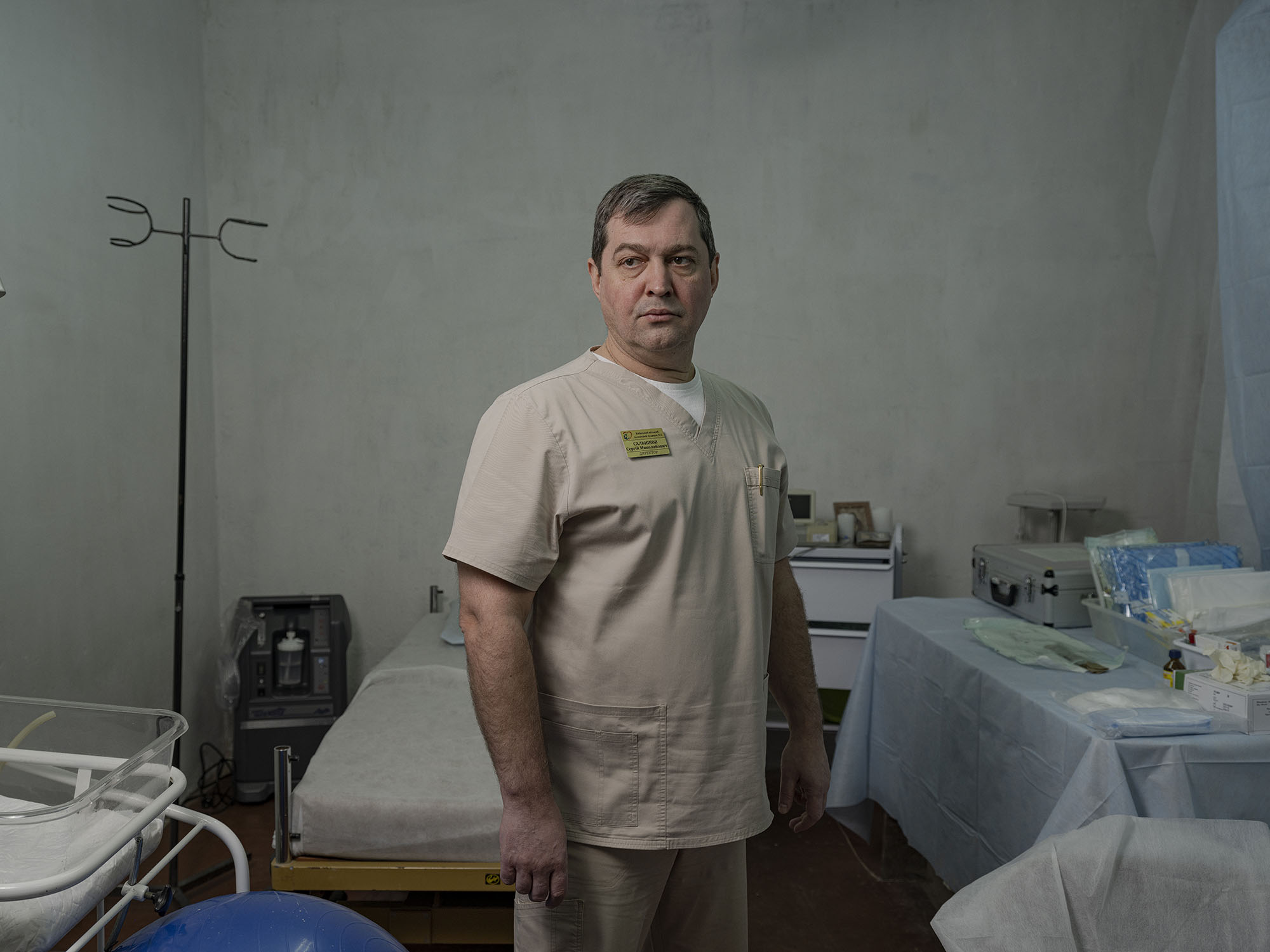
Bucha, a town where Russian soldiers have reportedly committed multiple war crimes, and as a result of which Russia has been accused of genocide of Ukrainian people, is 30 km away. Despite the fighting occurring a stone's throw away, and Russian troops attempting to enter Kyiv, Dr. Serhiy Salnykov, the hospital director, has committed to remain at work. “We are doctors, we have a special status in any situation and it’s our sworn responsibility to be here and help people,” he says.
In Kyiv, since the war started Dr. Salnykov has been working without a day off and has spent most nights at the hospital. “My main fear now is not to lose my spirit of resilience and fight in me. I am afraid that one day I will wake up and not have it and I’ll want to give up. But that’s not an option.”
Russia's bombing of the maternity hospital in Mariupol was a definitive moment in the war for Dr. Salnykov. “There are lines you don’t cross. Never. These are the places where children are born,” he says, “And there is no situation where a place like this can be a threat to anyone. And I’ll add another thing: for a person whose child was taken there is nothing else left in life than revenge, because for a person like that nothing else will matter, including their own life. So for me, Mariupol is pain, a scar for my entire life.”
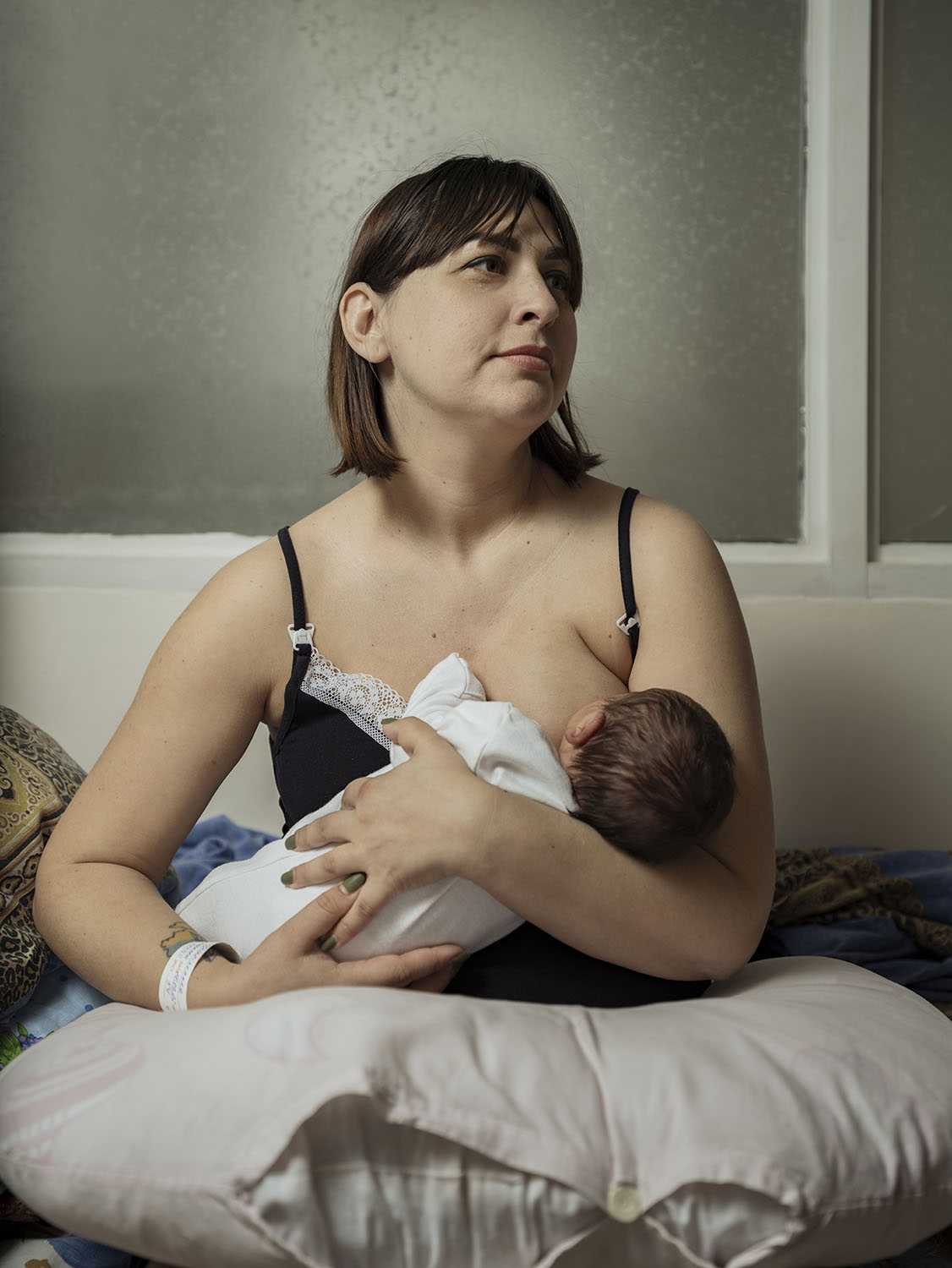
A Kyiv native, Nataliya Kucherenko, 25, didn’t imagine the birth of her second child like this–going through countless checkpoints on the way to the hospital in her own town. She was already in labor in the back of an ambulance. “I was truly afraid. At least when we were in our basement during the air raid alarm I felt somewhat protected.”
A few hours later Stefania was born. “For a moment I forgot there is a war…,” Natalya said. But she was quickly reminded of it as another alarm went off, urging everyone to shelter. So now, with Stefania who is one day old, they were getting used to a new reality of living between a hospital bed and a basement.
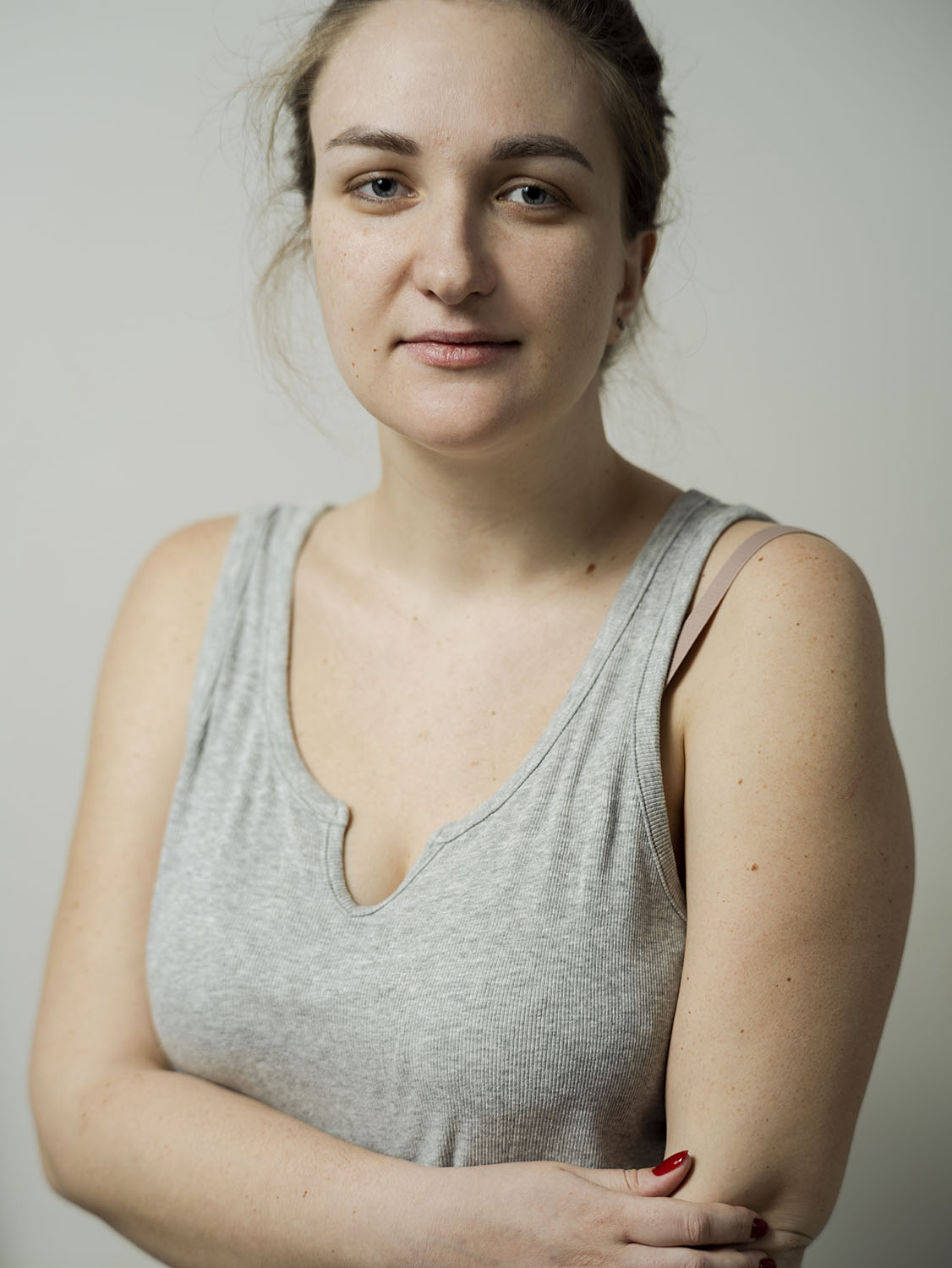
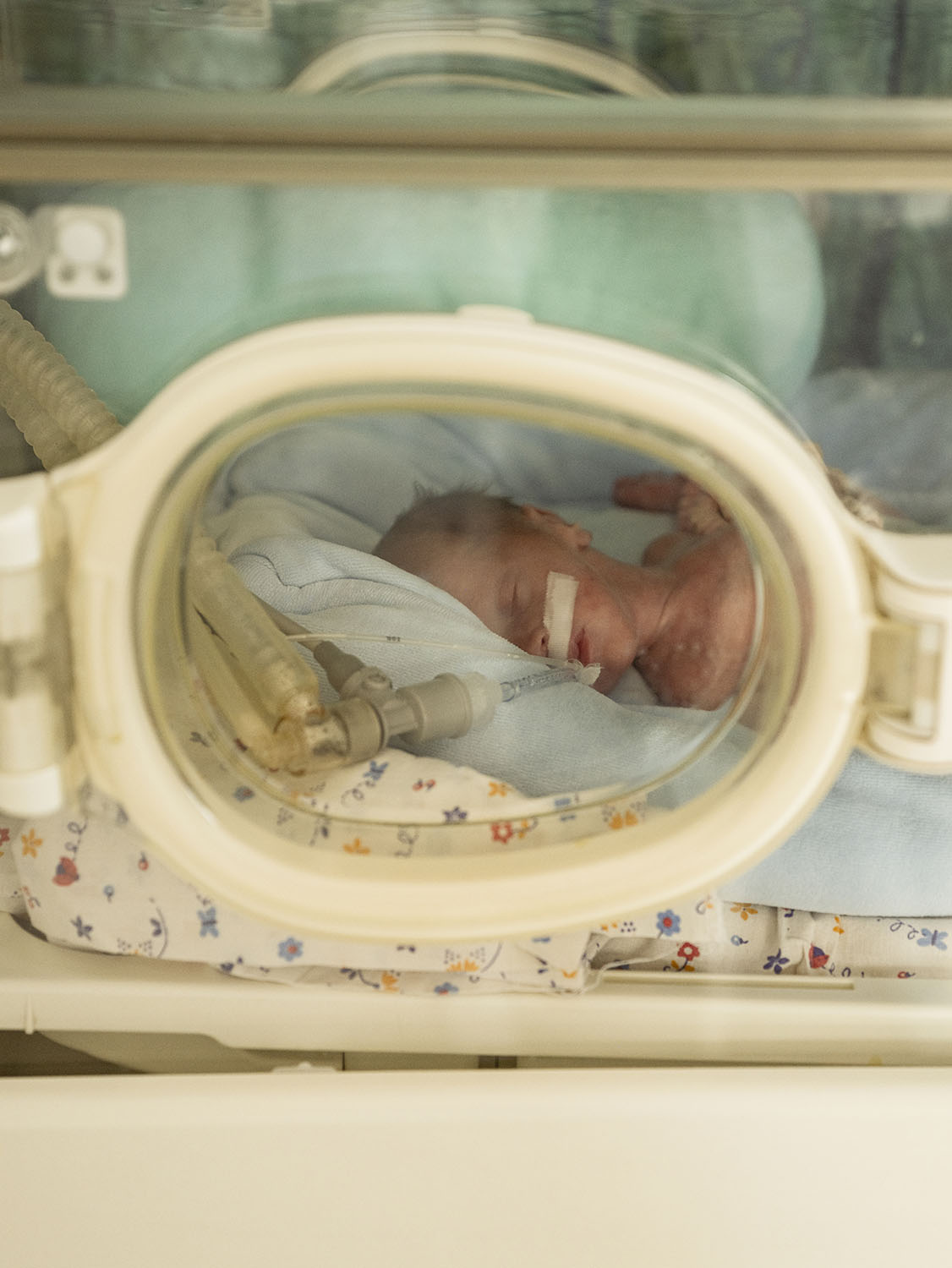
On February 25th Daria Kucherenko, 25, a day after the war started, decided to leave. But on the road, she started having complications and ended up in a hospital near Kyiv, in a small town called Brovary. After a few days there she was transferred to Maternity Hospital #2. On March 6th she had to undergo a C-section delivery. “I blame myself for all this because I was so stressed. And I am sure it affected everything that has happened,” she says.
Her baby, born extremely premature, has been on a ventilator since then, a floor up from the room where Daria stays with her husband. He was given the name Demid. “During the air siren we don’t go to the basement to the shelter, we go to him,” Alina says.

Oksana Olkhovenko, 35 is from a town called Bakhmut, in Donetsk Oblast of Ukraine. In 2014 she was about to get married and the war came to her hometown. Seeing it come to Kyiv where she lives now was another shock. “It all feels like a bad dream. It seems like I’m awake but I don’t want to believe it and I want to be awoken again.”
Now she experiences similar feelings as she did in 2014–anticipating a major life event, the birth of her second child, the experience darkened by the atrocities unfolding around her. “… it should have been an expectation of joy, but you live in a fear, horror, and without an understanding of what will happen tomorrow.”
From February 24th to March 16th they stayed in their apartment in Obolon, a neighborhood of Kyiv that was facing the Russian forces outside of the city. On March 16th it was time. It was one of the few daytime curfews implemented in Kyiv through March when the risk of street fighting was high. They called an ambulance but even though they were in an emergency vehicle the trip was nerve-wracking.
They arrived at the hospital around 12:30 pm and at 4:04 pm Anna was born as air-raid sirens sounded. Shortly after her birth, they were sitting in a basement as the muffled sounds of explosions were heard outside.
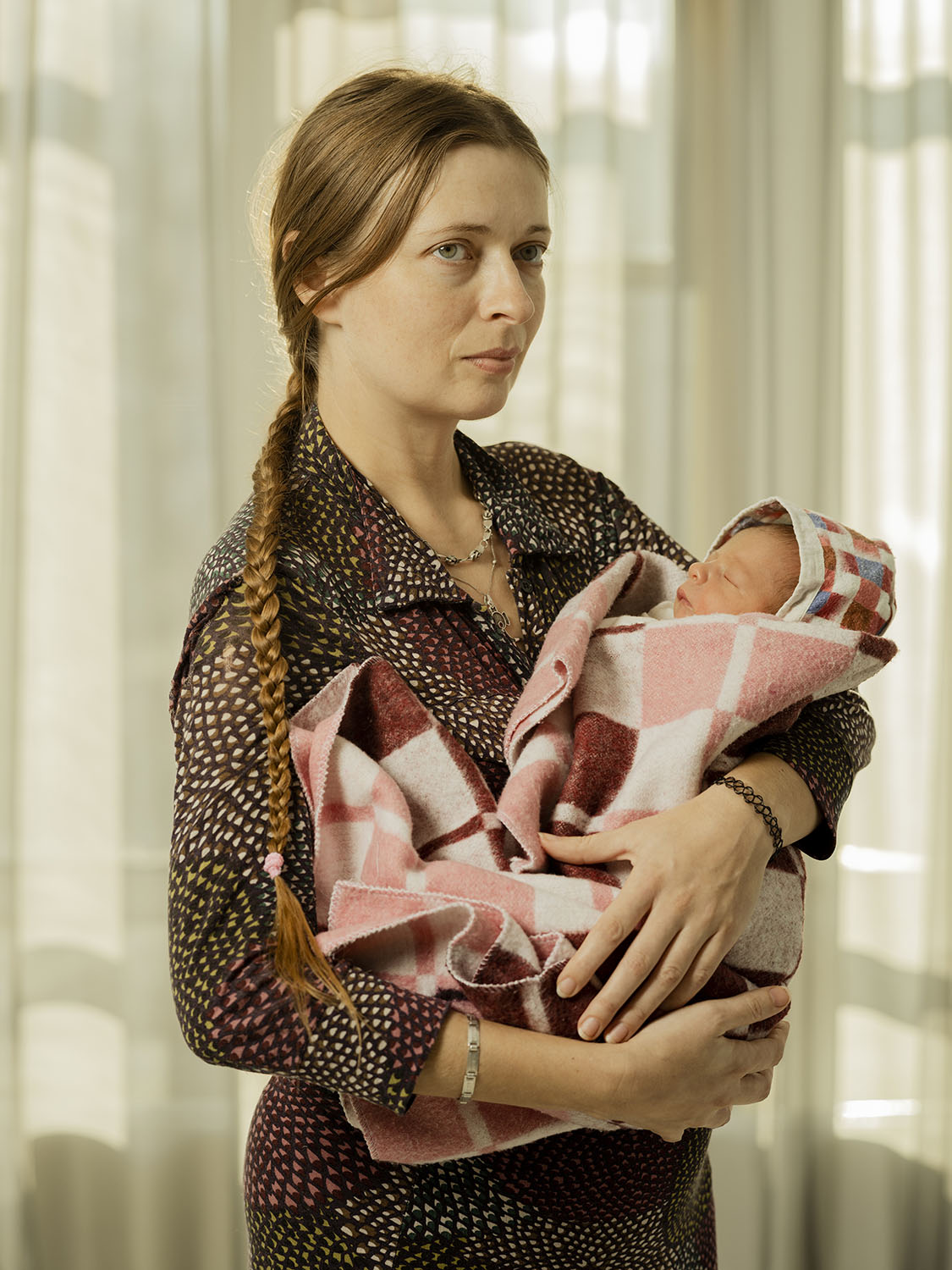
Instead of opting to travel and give birth elsewhere, Leisa wanted to stay near the hospital she trusted and rely on a wide network of volunteers that have already established a support network for everyone in need. “We’ve been in this situation since 2014 so Ukrainian people are prepared. The only good thing about the war is that it brings people together and puts away all other differences and small quarrels.”
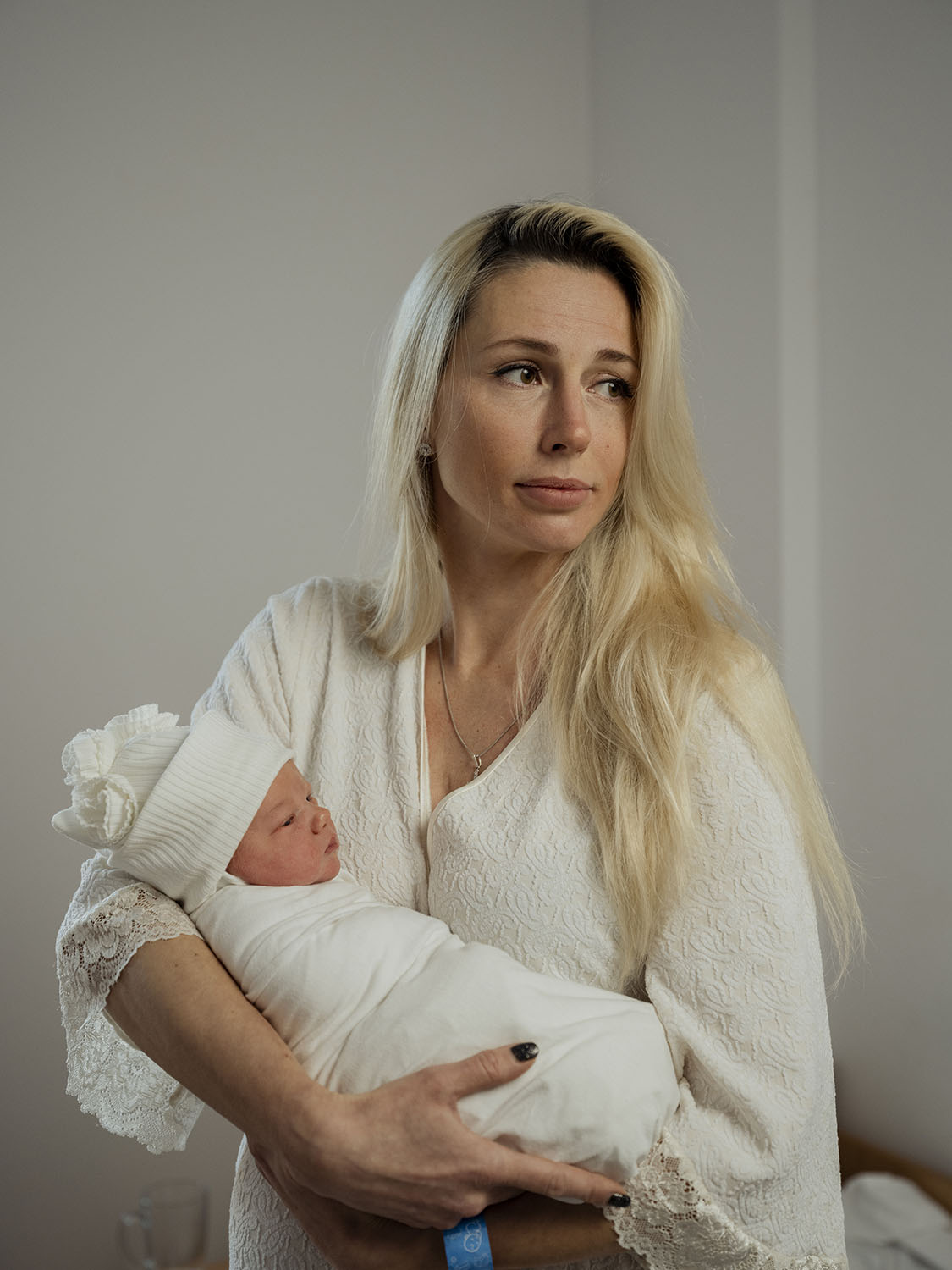
Marina Trusevych, 37, lives with her husband and two sons on Kyiv’s left bank. On the morning of February 24th, she was awoken by her husband screaming, “The war has started!” She looked out of the window to see explosions and smoke on the horizon. Downstairs she saw her neighbors running to their cars with bags. Marina couldn’t believe her eyes. Panicking, they started packing whatever they could see. “All I was searching for was the stuff for the unborn baby. I guess an instinct…” But Ms. Trusevych was in the 36th week of her pregnancy and facing the possibility of having to give birth any day. She realized that she had nowhere to go. To be on the road in the midst of mass exodus without a plan or place to be and not knowing where she will give birth, made her decide to stay.
They drove to the apartment of their in-laws in the center of Kyiv which they thought would be less hazardous than the Kyiv outskirts and stayed there. Thankfully Maternity Hospital #7 where she wanted to give birth was about a 15 minute drive from the apartment, and they were able to get there without an incident when the time came in mid-March.
“What to do now, we have no idea. Kyiv is still being bombed, and I understand that it’s a lottery, anywhere else is as dangerous. So to travel with a two-day-old baby and my other kids…I don’t know. And where? We have nowhere to go…” So Marina and her husband are staying put in Kyiv, hoping for the best.